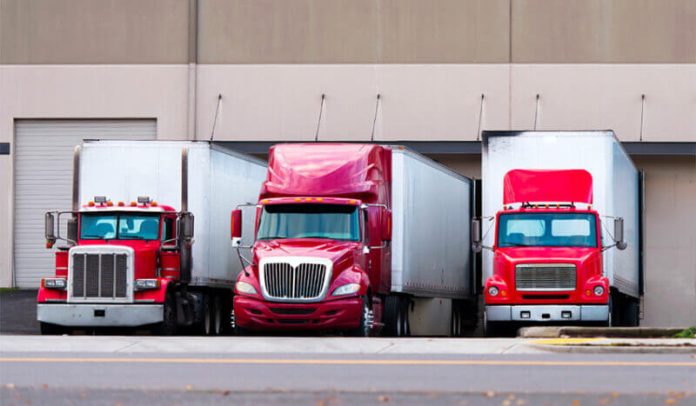Commercial supply chains are under threat in both Mexico and the United States due to a shortage of truck drivers.
Mexico’s National Chamber of Trucking (Canacar) puts the shortfall at 50,000 drivers, while the International Road Transport Union (IRU) said the shortage in Mexico grew 175% in 2021, the equivalent of 87,500 drivers.
The United States is facing the same pressure, according to the American Trucking Association (ATA). It said last month the driver shortage had risen to 80,000, an all-time high, and predicted that 100,000 more drivers would be required by 2023.
(A report published last week by Quartz disputes the ATA’s claim, arguing that there is no shortage of drivers but a shortage of “good trucking jobs.” It said there has been a shortage for 16 years due to extremely high turnover because truckers can find better working conditions and pay elsewhere.)
In Mexico, the shortage has raised pay levels. Before the coronavirus pandemic, drivers earned 20,000-45,000 pesos a month (about US $2,340 at the higher end), but in northern states they can now earn 70,000-100,000 pesos a month (as much as $4,800).
In the U.S., private fleet truck drivers earned an average of $86,000 a year before the pandemic, which has increased to $100,000 since, and comes with a signing bonus, the newspaper Reforma reported.
The head of a logistics think tank in Querétaro said the knock-on effects of the pandemic had transformed the industry. “With the pandemic and the saturation in ports, the salaries of drivers have increased around 20%,” said Carlos Canseco of Cilqro. “The northern states of Mexico are where salaries have increased exorbitantly and where companies suffer most from the flight of drivers to the United States,” he said.
The Road Transport Union said Mexico’s shortfall was due to a lack of qualified truckers, difficult working conditions, migration to the United States and a failure to attract young people to the trade.
The vice president of Canacar, Refugio Muñoz, added insecurity on the highways and health risks to the list, which he said included obesity, high blood pressure and drug consumption to meet the physical demands of the work.
Muñoz added that the labor shortage was causing wider economic damage: “[It] forces [companies] to stop their investment and growth plans …”
Trucker Rocío Hernández, 38, who has 10 years’ experience in the industry, said the working conditions made the job a hard sell: “This is a job where we do not have set hours, we are away from home for long periods of time and we do not always receive the treatment we deserve despite the importance of our work. Sometimes that bad treatment comes from employers and their clients,” he said.
With reports from Reforma
